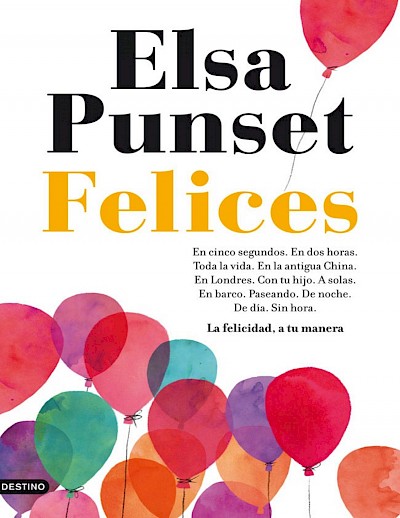"You can live with curiosity, passion and gratitude until the last day of your life".
Oliver Sacks
In the last months of his life (passed away in 2015), Oliver Sacks was faced with enormous and poetic dignity, and a palpable and inspiring thanks, at the end of his life. He was eighty-one years old and terminally ill, and he wanted to share his latest thoughts with the rest of the world. He overturned this legacy in a series of beautiful letters he published in The New York Times.
“My father, who lived to be ninety-four, used to say that the eighties to nineties had been his most enjoyable life. For him, and now I begin to share his opinion, those years were not so much a decline as an extension of his mental life and perspective. At that age you have a long life experience, not only of your own life, but also that of others. You have seen triumphs and tragedies, economic expansions and recessions, wars and revolutions, great achievements and also profound ambiguities. You have witnessed the rise of great theories that in the end have been defeated by the stubbornness of the facts.
You are more aware of the transience of life, and perhaps you pay more attention to beauty. At eighty you can see things with great perspective and see history as something alive and lived, something impossible when you are younger. I am able to imagine, to feel in my bones, what a century is, an impossible thing when I was forty or sixty years old. I do not consider old age as an increasingly sordid time that one has to endure and cheat as one can, but rather a time of leisure and freedom, in which you are emancipated from the artificial urgencies of previous years. That freedom allows me to explore whatever I feel like, and to integrate the thoughts and feelings of a lifetime.
I can't pretend I'm not afraid. But the feeling that predominates in me is gratitude. I have loved and I have been loved; I have received much and have given something in return; I have read and traveled and thought and written. I have had a relationship with the world, the special relationship between writers and readers.
"Above all, I have been a sentient being, a thinking animal on this beautiful planet, and that alone has been an enormous privilege and adventure."
Neurosurgeon Paul Kalanithi, who also died, like Oliver Sacks in 2015, recounts that vital turning point in his book When Breath Becomes Air, a book that recounts his life after being diagnosed with a Terminal cancer at the height of a career full of potential and a life full of promise.
Before dying, Kalanithi left this message for her newborn daughter Lucy: "There is something I want to say to this creature, who is all the future and whose life intersects and briefly overlaps with me, whose life, however, except for a miracle, It is almost past ... My message is simple: when you come to one of those many moments in which you will have to give an account about yourself, of what you have been and done for the world, do not despise that you filled with joy the last few days of a dying man, and that is a joy unknown to me in all my previous years of life, a joy that does not ask for more, but rests, satisfied ».
«Twenty years from now you will be more disappointed by the things you did not do than by the things you did. So navigate away from the safe harbor. Explore, dream, discover.»
Mark Twain
«When someone dies, he cannot be replaced. It leaves holes that cannot be filled, because the destiny - the genetic and neuronal destiny - of each man and each woman is to be unique. And for this he must find his own way, live his own life, die his own death.»
Oliver Sacks
